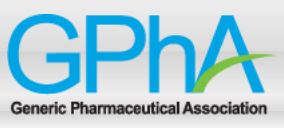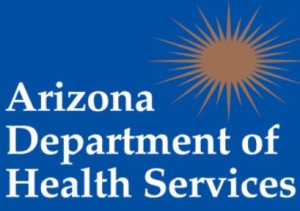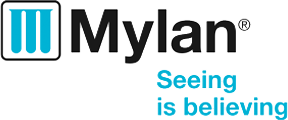- GPhA speaks out on generics labeling, access (drugstorenews.com)
…the Generic Pharmaceutical Association released statements related to the current state of generics, specifically proposed changes to rules regulating labels on generic drugs from the Food and Drug Administration, as well as steps it believe lawmakers should take to ensure affordable medication access…
- …accessibility, the organization recommended that lawmakers should encourage the FDA to review the approximately 3,800 generic drug applications awaiting action in a timely manner.
- …wider use of generics among low-income Medicare beneficiaries, which it estimates could save $17.7 billion over the course of 10 years.
- …passing the FAST Generics Act, which it says will keep drug companies from using Risk Evaluation and Mitigation Strategies to keep generics from hitting the market…
- …called for a repeal of a Medicaid rebate increase for generic drugs included in this year’s budget agreement.
- … regulations concerning labeling of generics, as the organization says currently, branded and generic drugs have the same label, but a proposed change to generic labeling requirements would require manufacturers to update labels without frist (sic) getting FDA approval…proposed the Expedited Agency Review (EAR), which relies on the FDA to review new safety information and take action on label changes.
- … EAR suggests time parameters for the FDA to take action and encourages the adoption of e-labeling for real time information sharing rather than continuing the reliance on paper label changes that take months or years to adopt.
- Arizona inspectors find Theranos lab issues (azcentral.com)Safeway to dissolve partnership with Theranos (pharmacist.com)
Before…Theranos suspended use of its finger-prick blood draws in September because of Food and Drug Administration concerns, the company tangled with Arizona lab regulators over testing instruments and lab practices…Theranos, which operates retail locations inside 40 Walgreens stores across metro Phoenix, did not always meet lab regulations before taking corrective steps, according to inspection reports…After an April 2 survey of the company's Scottsdale lab, Arizona Department of Health Services inspectors noted four "deficiencies" at the lab...The state inspectors conducted the survey on behalf of the federal Centers for Medicare and Medicaid Services, which regulates laboratory testing…The four issues concerned proficiency testing, validation of instruments used to analyze blood samples, humidity levels outside of acceptable ranges for some lab instruments and how blood-sample collections were dated…In September, state lab inspectors said that Theranos did not meet proficiency testing standards for certain substances, including toxicology and four other regulated substances.
- Senators Call on FDA to Allow Certain Canadian Drug Imports (raps.org)
Food and Drug Administration should allow the importation of pharmaceutical products from Canada if they meet certain stipulations, Sens. Chuck Grassley and John McCain wrote in a letter to Health and Human Services Secretary Sylvia Burwell… senators call on FDA to “immediately” certify the importation of prescription drugs
- if they are off patent and are no longer marketed by the drug developer,
- if there are “significant and unexplained” price increases,
- if no direct competitor product is currently marketed and the introduction of a new drug will benefit US consumers, or
- if the drug is “produced in another country by the name brand manufacturer that initially developed the drug or by a well-known generic manufacturer that commonly sells pharmaceutical products in the United States.”
Drugs could also be imported from countries outside of Canada “with similar regulatory regimes related to drug approvals,”…As far as how FDA could go about allowing such imports, the senators point to the Medicare Prescription Drug, Improvement and Modernization Act of 2003 that allows FDA to permit pharmacists and wholesale retailers to import drugs from Canada.
- Bumper haul of expensive new drugs heads to U.S. and Europe (reuters.com)
Food and Drug Administration has so far approved 37 novel drugs in 2015, more than the 34 that had been cleared by this stage a year ago and just short of 2014's final total of 41…European Medicines Agency is also waving through more products, recommending a total of 84 new medicines so far, up from 75 in the first 11 months of 2014…The brisk pace of new arrivals over the past two years reflects improved productivity in drug research labs and a change of pace by regulators, who have committed to speed up the process of getting life-saving treatments to patients, especially in cancer…The science has got better and we seem to be finding more molecules that are showing material improvements…the rapid pace of new drug launches is forecast to continue, with 225 new drugs expected to be approved between 2016 and 2020…Drug companies argue they need to make decent profits to pay for the billions of dollars needed for drug research. Many companies also have extensive low-cost or even free access schemes for patients who cannot afford their medicines… For healthcare systems in the developed world, paying for such pricey medicines is a challenge - but for many patients in poor countries they will remain out of reach, reflecting the economic realities of drug development.
- DOJ antitrust unit subpoenas Mylan over pricing of doxycycline (reuters.com)
The antitrust division of the U.S. Department of Justice has subpoenaed Mylan N.V. for information relating to the marketing, pricing and sale of its generic doxycycline antibiotic products…Department of Justice has sought information on any communication with competitors about the anti-bacterial products, the company said in a regulatory filing, adding it would cooperate with the federal agency…drugmakers have been under increased pressure this year from the government, insurers and corporations over steep increases in the prices of generic drugs, which have dragged on shares in the sector… There are many forms of doxycyline made by more than a dozen companies, including Valeant Pharmaceuticals International, Allergan, and Hikma Pharmaceuticals, according to the U.S. Food & Drug Administration's database.
- Law for rare disease drugs needs revamping, researchers say (statnews.com)The Orphan Drug Act: Restoring the Mission to Rare Diseases.(req sub) (ncbi.nlm.nih.gov)
…the Orphan Drug Act was passed to give drug makers incentives to create medicines for rare diseases, which are defined as maladies that affect fewer than 200,000 people. The incentives include tax credits and seven years of marketing exclusivity. Since then, more than 400 orphan drugs have been approved by the Food and Drug Administration. Last year, though, 41 percent of all FDA approvals were for orphan drugs. And sales of orphan medicines, which carry high price tags, are forecast this year to total $107 billion…team of researchers argues that drug makers are exploiting loopholes that allow them to widen the market for such drugs and distorting the original purpose of the law. We spoke with Martin Makary, a cancer surgeon and professor of health policy at Johns Hopkins School of Medicine…
- Prices Are Hardly Going Up at All (bloomberg.com)
Price tags on branded drugs are still rising at more than 10 percent…For all the recent backlash to drug price increases that have incited politicians' anger and roiled markets, a curious thing happened in the third quarter: Prices for generic drugs, which make up 85 percent of prescriptions, hardly increased at all…inflation among generic drugs dropping from 4 percent two years ago to zero. Prices of more expensive brand-name drugs have been increasing at more than 10 percent a year…Fewer drugs are losing patent protection, so there aren't as many new generic versions hitting the market as there were a few years go. At the same time, consolidation among generic manufacturers has slowed, limiting their ability to raise prices...Food and Drug Administration has accelerated its process for approving new generic versions. All these things influence how many manufacturers are making a particular copycat drug and what they can charge for it.
- Exclusive: Investments give lawmakers personal stake in biotech, health care (statnews.com)
The congressman didn’t mince words when the Food and Drug Administration aired a plan to regulate diagnostic tests at a recent hearing. That could slow approvals, Representative Christopher Collins warned: “You run the risk of causing people to die.”…What Collins didn’t say at the hearing was that he has a financial stake in the issue: He co-founded a company that makes components for those tests. And he retains an ownership stake in that company, an asset he values at between $5 million and $25 million…Welcome to Congress, where such arrangements are legal — and to many critics, deeply disturbing…analysis of thousands of pages of congressional disclosure forms found that about 30 percent of senators and 20 percent of representatives held assets in biomedical and health-care companies, or in specialty funds set up to invest in those industries, during 2014…Some of the most aggressive congressional investors in the biomedical sector also sit on key committees, such as the House Judiciary Committee, which has jurisdiction over patent law, or the House Energy and Commerce Committee, which oversees the Food and Drug Administration and works on many issues of critical importance to the industry, including drug regulation, research funding, and taxes on medical devices…Members of Congress are not required to recuse themselves from voting on bills that could affect their personal finances, unless they would be the primary beneficiary of the legislation.
- FDA to Announce Next Steps in Essure Review (raps.org)Safety and efficacy of hysteroscopic sterilization compared with laparoscopic sterilization: an observational cohort study (bmj.com)
Food and Drug Administration says it plans to make an announcement on the birth control device Essure in February 2016, after the agency completes a "high priority" review of the device's safety…The agency is also considering a recent MDEpiNet study…found women who received Essure had a "more than 10-fold higher risk of undergoing reoperation," when compared to women who had laparoscopic sterilization…Essure is a permanent birth control device…marketed by Bayer…Essure was first approved...in 2002 under FDA's premarket approval process…In recent years Essure has been surrounded by controversy as patients and activists have claimed the device has caused serious and debilitating side effects… Others have claimed the device is not as effective as it claims…in November, Representative Mike Fitzpatrick introduced a bill titled the E-Free Act directing FDA to pull Essure's PMA within 60 days of the bill's passage. So far the bill has four co-sponsors, including Reps. Marsha Blackburn, Christopher Smith and Lou Barletta.
- FDA says Novartis plant in India backdated data and withheld info (statnews.com)Regulating India's Generic Drug Industry (podcast 13:46) (soundcloud.com)
Last month, Novartis disclosed that it received a warning letter from the Food and Drug Administration about manufacturing issues at two facilities in India that are operated by its Sandoz generic drug unit…At the time, the company noted it was working closely with the FDA to resolve the problems. But Novartis never actually specified what bothered the agency. Now, the warning letter has been posted on the FDA website, and the infractions are concerning, especially given that the plants are run by one of the world’s largest suppliers of generic medicines…The disclosure comes amid ongoing FDA scrutiny of overseas manufacturing plants, particularly in India, where a string of drug makers has failed inspections and had products banned from the US. The Indian pharmaceutical industry is furious that the agency appears to be singling out its ranks for infractions; however the Sandoz letter indicates the FDA is not confining its reviews to India’s domestic drug makers…A key issue that alarmed the agency during its August 2014 inspections was the integrity of the data Sandoz was collecting…“Backdating … records is unacceptable,” the FDA wrote in its Oct. 22 warning letter. The agency also expressed concern that Sandoz failed to demonstrate the extent to which such practices may be widespread and — this is significant — whether previous data is even reliable.








